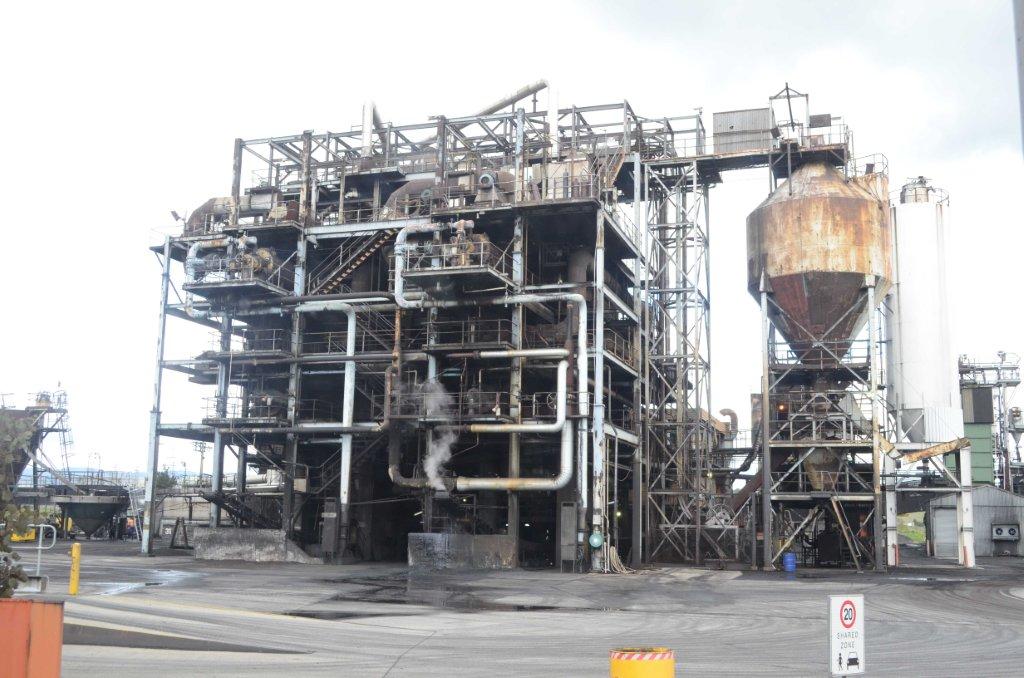After about 45 years of operation the end has finally come for Morwell’s ageing char production facility, with the plant coming offline for the last time last week.
A number of workers performed their last shifts on site on Tuesday, while a handful will remain on site to shut down the production plant, known as the ‘retort’.
Australian Char managing director Nicole Brook said it was a sad time for the business.
“Auschar has a very long history in the Valley, and the retort served a very long function in that history, so it’s sad to see that part of the business come to a close,” Ms Brook said.
Producing char for a range of European and Asian industries, including carbon control in the steel and iron industries, and in water and pollution filtration systems, global competition saw Auschar priced out of the market during the 1990s and 2000.
The business has since moved to diversify away from char production, announcing the plant’s pending closure in December last year.
Ms Brook said the company was currently investigating plant decommissioning proposals, while the site would continue to be used for material handling.
Of an initial voluntary redundancy target of about 18, Ms Brook said about three char production workers had been retained within the wider business.
Ms Brook said it would be “business as usual” at Auschar’s consumer arm – heatbead production from a separate Morwell site.
Tough negotiations underpin restructure
Australian Workers Union Gippsland organiser Sam Beechey said Auschar was playing hardball in the development of a new enterprise bargaining agreement for the company’s remaining workers.
“The workers have faced some pretty mean spirited management here. They don’t want to raise pay rates at all and want to wind back virtually every condition imaginable,” Mr Beechey said.
“The managers have been crying all over their desks about how tough things are and want to wind back every condition those workers enjoy; it’s not fair and not good enough, the only thing we are prepared to do is buy them a box of tissues.”
While Ms Brook said the company would not discuss negotiation details publicly, she said the current industrial talks reflected the workplace restructure, which left the business “entirely different moving forward”.
“Like all Australian manufacturers, we face a very competitive marketplace,” Ms Brook said.
“We have had positive responses from our workforce and are confident that we have their support to adopt any operational changes that will keep Auschar viable into and the future and our employees in jobs.”












